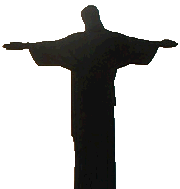07/28/2004: "Question of the Day: Was Jesus really born on December 25th, or is it a Pagan holiday?"
NOTE: If you'd like to submit a question, either post it as a comment in this entry or e-mail me at questions at thecrawfordfamily dot net.
The simple answer to this question is that we don't know exactly when Christ was born. In fact, current research suggests not only was he not born in December but he wasn't even born in zero AD. He was likely born in 4-6 BC. This comes from combining Roman records and the Biblical accounts of His birth. King Herod, who sent the Magi to find the infant Christ, died in 4 BC according to Roman records. So assuming those records are accurate, Christ must have been born before then. As for the time of year, most scholars think that he was probably born in the late summer, perhaps August and much of that information comes from when Census's were often held.
So with all of this being true, why is it that we celebrate Christmas in December?
Some make the accusation that the Catholic Church, to be popular, adopted the Winter Solstace rituals from the Roman Pagan religions. This however is a drastic oversimplification.
When is Kwanza celebrated? Right after Christmas. Do you think that the originators of Kwanza are trying to adopt Christianity? I guarantee you that is not the case. They are quite hostile to Christmas. They're trying to turn the Christmas celebration into their own celebration of their African roots.
Similarly, the Catholic Church saw an opportunity to convert Pagans to Christianity by giving new meaning to the Solstace. What happens at the Winter Solstace? Things change from getting darker to getting lighter.
Christ is the light. When He was born it was the beginning of His bringing light to the world. It took 30 years for Him to be ready to share His message with the world. So, like the Winter Solstace, it was still dark when He was born, but he was bringing hope to the world, slowly but surely. This symbolism, although often lost in our modern secular world, was much more prevelant in the early Church.
So yes, the Winter Solstace was celebrated as a Pagan holiday. But by transforming the holiday from a Pagan one to a Christian one, the Catholic Church was not showing it's "true Pagan colors" but shining the brilliant light of Christ for the whole Pagan world to see.

